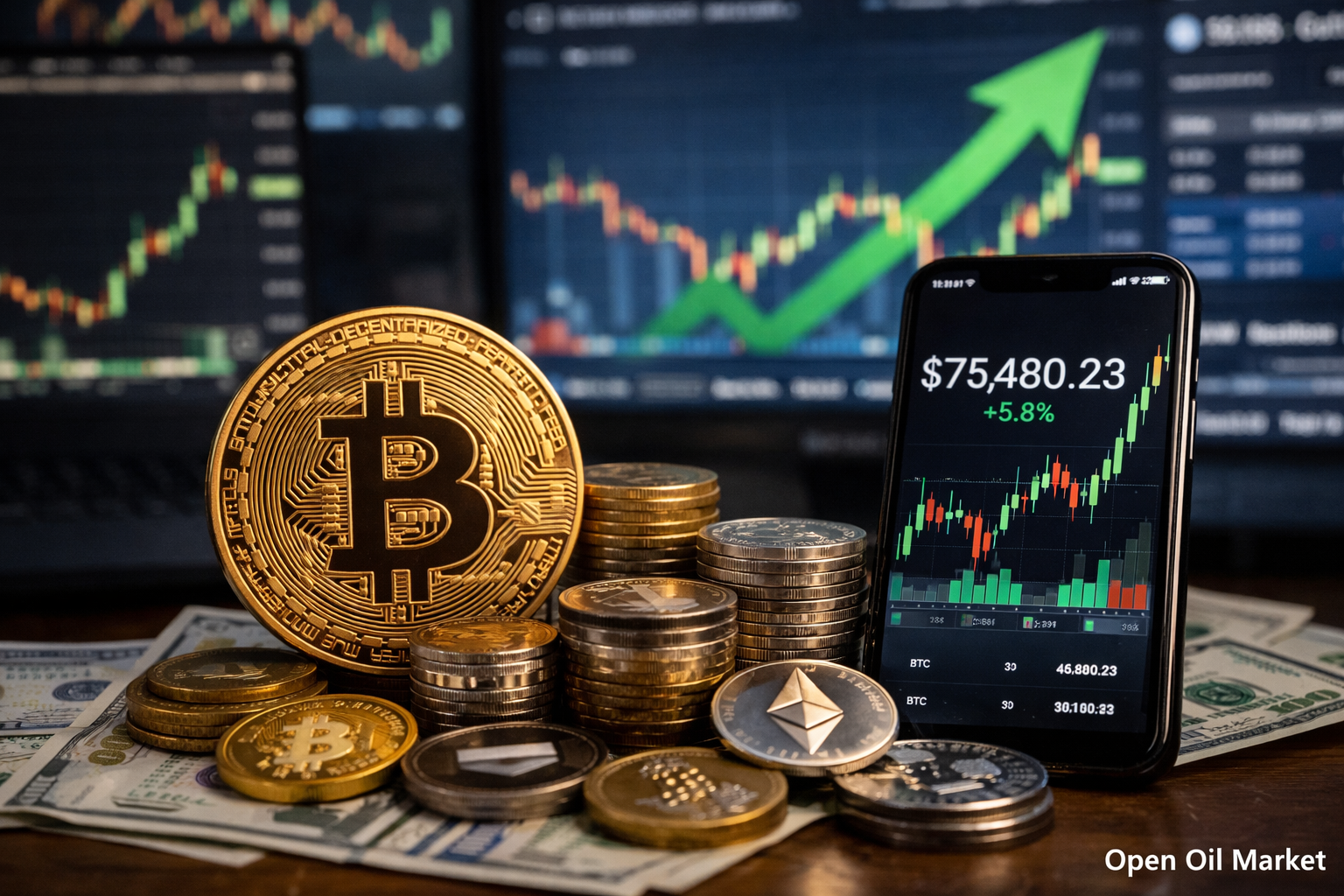
Global Startup and Venture Capital News for 18 October 2025: The Return of Mega Funds, Record AI Deals, A New Wave of IPOs, and Increased M&A Activity. An Analysis of Key Trends in the Global Startup Market.
The global venture market is experiencing a new upswing: the return of mega funds, record deals in AI, a new wave of IPOs, global megadeals, and a diversification of sector focus.
By mid-October 2025, the global venture capital industry is demonstrating a solid recovery after several years of decline. Investors worldwide are once again actively financing technology startups—record deals are being struck, companies’ IPO plans are back on the table, and major players are returning to the market with large investments. Governments in various countries are enhancing their support for innovation and technology. As a result, private capital is gradually flowing back into the startup ecosystem, giving it a new impetus for development.
Venture activity is increasing across all regions. The United States remains the leader (especially as the AI segment experiences explosive growth), while the volume of venture investment in the Middle East has nearly doubled in a year. In Europe, Germany has surpassed the United Kingdom in venture deals for the first time in a decade. Meanwhile, in Latin America, Mexico has outpaced Brazil in attracting capital. India, Southeast Asia, and Gulf countries are drawing record flows of investment against a backdrop of relative decline in China’s activity. The startup scenes in Russia and neighbouring countries are striving to keep pace, despite external limitations. A global venture boom is observed, although investors continue to act selectively and cautiously.
Below are the key events and trends shaping the venture market agenda as of 18 October 2025:
- The return of mega funds and large investors. Leading venture funds are attracting record capital and are once again actively investing in startups, saturating the market with liquidity and fuelling risk appetite.
- Record investments in AI and a new wave of "unicorns." Exceptionally large funding rounds are driving startup valuations to unprecedented heights, particularly in the artificial intelligence sector, with many new "unicorns" entering the market.
- Revival of the IPO market. Successful tech company public listings and new listing applications signal that the long-awaited "window" for exits has reopened.
- Diversification of sector focus. Venture capital is flowing not just into AI, but also into fintech, climate technologies, biotech, defence projects, and interest in crypto startups is gradually returning.
- A wave of consolidation and M&A activity. Major mergers, acquisitions, and strategic investments are reshaping the industry landscape, creating new opportunities for exits and accelerated growth for startups.
- Local focus: Russia and CIS countries. New funds and initiatives to develop local startup ecosystems are being launched in the region, gradually attracting investor attention despite external constraints.
The Return of Mega Funds: Big Money Back in the Market
The largest investment players are triumphantly returning to the venture arena, signalling a renewed appetite for risk. The Japanese conglomerate SoftBank has launched a new Vision Fund III with a capital of approximately $40 billion, focused on advanced technologies (including artificial intelligence and robotics). Sovereign funds from Gulf states have also become active, pouring billions into tech projects and launching government mega-programmes to support startups, transforming the Middle East into a new tech hub. At the same time, dozens of new venture funds are emerging worldwide, attracting significant institutional capital for investments in high-tech sectors.
Renowned firms from Silicon Valley are also increasing their presence. In the American venture sector, funds have accumulated record reserves of uninvested capital ("dry powder")—hundreds of billions of dollars that are ready to be deployed as confidence returns to the market. The influx of this "big money" is saturating the startup market with liquidity, providing resources for new funding rounds and supporting the growth of promising companies’ valuations. The return of mega funds and large institutional investors not only intensifies competition for the best deals but also instils confidence in the industry regarding the further influx of capital.
Record Investments in AI and a New Wave of "Unicorns"
The artificial intelligence sector remains the main driver of the current venture upturn, demonstrating record levels of funding. Investors are eager to establish positions among AI leaders, directing colossal resources into the most promising projects. For instance, the startup xAI (founded by Elon Musk) raised approximately $10 billion, while OpenAI secured about $8 billion at a valuation of around $300 billion—these rounds significantly exceeded initial targets, underscoring the excitement surrounding AI companies.
Notably, not only applied AI applications are being funded but also infrastructure solutions for them. There are rumours in the industry that one data storage startup for AI is negotiating a multi-billion funding round at a very high valuation—investors are ready to invest even in the "picks and shovels" for the new AI ecosystem. The current investment boom has given rise to a whole wave of new "unicorns" (private companies valued at over $1 billion), mainly in the fields of generative AI, fintech, and advanced technologies. Although some experts warn of the formation of a bubble in the private capital market due to the rapid growth of valuations, investor appetite for AI startups remains unabated.
The IPO Market Comes Alive: A Window of Opportunity for Exits
The global IPO market is finally emerging from a prolonged lull and showing signs of revival. In Asia, Hong Kong is leading a new wave of tech public offerings: in recent weeks, several large companies have listed on the local exchange, raising billions collectively. For example, Chinese battery manufacturer CATL successfully conducted an IPO, raising approximately $5 billion—this debut demonstrated investors’ readiness in the region to actively participate in primary offerings again.
In the US and Europe, the situation is also improving. American fintech unicorn Chime recently debuted on the stock exchange, with its shares rising approximately 30% on the first day of trading. Following it, design platform Figma held its long-awaited IPO, raising about $1.2 billion at a valuation of around $15–20 billion; its stock prices also confidently increased from day one. Other well-known startups, including payment service Stripe and several tech companies with multi-billion dollar valuations, are preparing to go public in the second half of 2025.
Even the crypto industry is attempting to take advantage of the improving conditions. Fintech company Circle successfully went public in the summer (its market capitalisation significantly increased following the listing), and the cryptocurrency exchange Bullish has submitted an application for listing in the US with a target valuation of around $4 billion. The return of activity in the IPO market is extremely important for the venture ecosystem: successful public exits allow funds to realise profits, return capital to investors, and redirect freed-up funds into new projects.
Diversification of Investments: Not Just AI
In 2025, venture investments are covering an increasingly wide range of sectors and are no longer limited to artificial intelligence alone. Following last year’s downturn, fintech is regaining momentum: significant funding rounds are taking place not only in the US but also in Europe and emerging markets, stimulating the growth of new digital financial services. At the same time, there is heightened interest in climate and "green" technologies: projects in renewable energy, eco-solutions, and agri-tech are attracting record investments amid a global trend towards sustainable development.
Appetite for biotechnology is also returning. The emergence of numerous promising drug and med-tech platform developments is drawing capital again, as the sector gradually recovers from a period of falling valuations. Additionally, in light of increased attention to security, investors are actively financing defence tech startups that are creating solutions for defence and cybersecurity. Even in the cryptocurrency segment, a slight recovery is underway: a partial restoration of trust in the market has allowed some blockchain startups to begin attracting funding again. The expansion of sector focus is making the entire startup ecosystem more resilient and reducing the risk of overheating in individual market segments.
Consolidation and M&A: Megadeals Reshape the Landscape
High startup valuations and fierce competition are driving the industry towards consolidation. Major mergers and acquisitions are once again taking centre stage, redistributing power in the market. For instance, Google has agreed to acquire Israeli cybersecurity startup Wiz for approximately $32 billion—this record-sized deal demonstrates the technology giants’ determination to secure key technologies and talent. Furthermore, there has been an increase in strategic buys: in the first half of 2025, the volume of startup acquisitions exceeded $100 billion (up 155% year-on-year), as major companies are willing to write large cheques for promising assets, particularly in AI and enterprise technologies.
Consolidation is also occurring within the venture sector itself. For example, investment bank Goldman Sachs announced the acquisition of the venture firm Industry Ventures for nearly $1 billion, underscoring the growing interconnectedness between traditional finance and the startup world. Overall, the activation of M&A activity and a series of megadeals indicate market maturation. Mature startups are merging with each other or becoming acquisition targets for corporations, providing venture investors with much-wanted profitable exits and accelerating the scaling of innovation.
Russia and CIS Countries: Local Initiatives Amid Global Trends
Despite external constraints, there is a revival of startup activity in Russia and neighbouring countries. The launch of several new venture funds with a total volume of approximately 10–12 billion roubles aimed at supporting early-stage tech projects has been announced. Local startups are beginning to attract more substantial capital: for instance, the Krasnodar foodtech startup Qummy recently raised about 440 million roubles at a valuation of roughly 2.4 billion roubles. Additionally, foreign investors are once again permitted to finance local projects in Russia, which is gradually restoring foreign capital's interest in the region.
While venture investment volumes in Russia and the CIS remain modest compared to global figures, they are steadily increasing. Some large companies are considering spinning off their tech divisions for an IPO as market conditions improve—for example, holding VK has hinted at a potential IPO for its subsidiary VK Tech in the future. New government support measures and corporate initiatives aim to boost local startup ecosystems and integrate them into global trends.
Cautious Optimism and Qualitative Growth
By October 2025, moderately optimistic sentiments have settled in the venture sector: successful IPOs and large deals indicate that the downturn period is behind us. However, investors are still approaching new projects selectively, favouring startups with robust business models and realistic growth plans. Strong capital inflows into AI and other advanced sectors instil confidence, yet funds are keen to diversify investments and strictly control risks to ensure that the new upswing does not lead to overheating. The industry is entering a new development phase with an emphasis on quality, balanced growth of innovation and capital.




